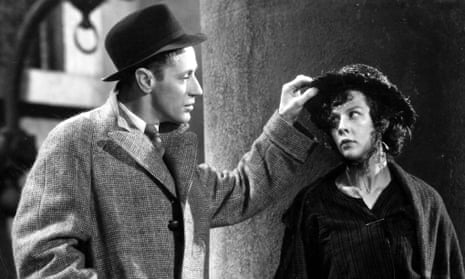The death of Leslie Howard in the air liner travelling from Lisbon must now be presumed. The actor was 50 this year, and began life as a bank clerk. After some war service he appeared on the stage in 1917, and first acted in London the following year in “The Freaks,” one of Pinero’s last plays. He was then seen but not particularly noticed in some of the highly successful light comedies of the post-war years. In 1920 he went to New York, where he soon became a fashionable actor on Broadway, appearing principally in English plays by Milne or Lonsdale. He stayed for the most part in New York until 1928, when he returned to London with a high American reputation and made a big success along with Miss Tallulah Bankhead in “Her Cardboard Lover.”
Soon after this Howard gave us his acting at its very best - quietly and delicately emotional - in a memorable revival of “Berkeley Square.” He took this fine performance and production to New York, and returned here in 1933 to play the man Shakespeare in “This Side Idolatry.” This failed abruptly and completely. The actor returned yet again to New York, and appeared in his own production of “Hamlet,” which London was never allowed to see. This Hamlet and the Gentleman Tramp in “The Petrified Forest” were his two greatest triumphs in the American theatre. He did not appear on the stage after his Hamlet in 1936.
Since 1940 he had been actively and intelligently interested in producing and acting in films. The many pictures in which he appeared, and was either director or co-director, included versions of “Outward Bound” and “Berkeley Square,” an adaptation of Mr. Maugham’s great novel “Of Human Bondage,” the first major Shaw film “Pygmalion,” and “The First of the Few,” in which he gave a typically gentle and persuasive portrayal of Reginald Mitchell, the man who invented the Spitfire aeroplane and died tragically young.
A frank, intensely English quality in Howard’s voice, face, and bearing must be taken as part explanation of his sustained popularity in New York. It was this same intensely English quality which made him popular everywhere in intensely English film parts like Sir Percy Blakeney, his modern counterpart Pimpernel Smith, and the professor of phonetics in “Pygmalion.” But it was exactly that same all-enveloping Englishness and phlegm which came between him and the big romantic and classical parts which were his ultimate ambition as an actor. We saw only his Romeo here, and that only in an over-elaborated film version. But this was enough to make us guess what a handicap a lack of abandon and temperament must have been in his Hamlet.
Sir M. Robertson’s tribute
Sir Malcolm Robertson, M.P., chairman of the British Council, has paid a special tribute to the recent work carried out by Mr. Leslie Howard, who has been lecturing for the British Council in Spain and Portugal. He said:
“Leslie Howard was one of the finest people who could have been chosen to help us in our work of making the British way of life more widely known abroad. He went on an arduous trip at considerable inconvenience to himself. He recognised that his visit would have an admirable effect on Anglo-Portuguese and Anglo-Spanish relations, and gladly undertook this tour as a contribution to the increasingly great part being played by actors, scientists, and men of letters in cementing international friendships.
“The reports we have had from both Spain and Portugal show that to his popularity as a lecturer he had added a host of personal friendships, won for him by the modesty and charm of his manner. His death leaves a gap in the world of the British film and theatre which can hardly be filled. The British Council is proud to feel that this great actor was associated with them in a venture which began so auspiciously and ended so tragically.”

Comments (…)
Sign in or create your Guardian account to join the discussion